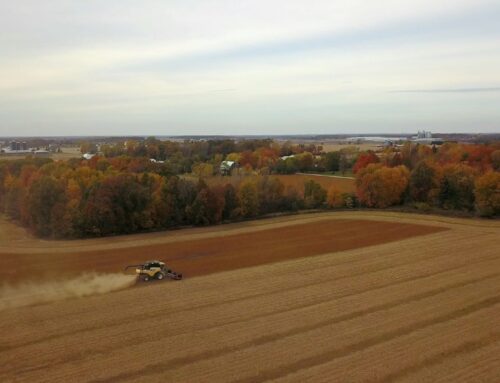Members of the U.S. Senate Agriculture Committee gathered at Arkansas State University in Jonesboro on Friday for a field hearing on the new farm bill, whose provisions will have a significant economic impact on rice, cotton and soybean producers in the state. The committee’s top Republican, Sen. John Boozman, highlighted the proceedings.
Between 1995 and 2020, Arkansas rice, cotton and soybean producers received $11 billion in commodity crop payments – an average of about $116,000 per recipient, with most subsidies flowing to large farms in the eastern part of the state along the Mississippi River. Only 10 states received more federal farm subsidies during this period. However, decades of subsidies have failed to adequately prepare Arkansas farmers for challenges lying ahead. Costly flooding, drought and wildfire risks are taking a toll in Arkansas and around the country, and Boozman has acknowledged this serious climate change issue.
The new farm bill must invest in resilience instead of dependence on farm subsidies. Some commodity groups are already vying for higher reference price guarantees in the farm bill, not to mention profit margin guarantees through government crop insurance and new shallow loss programs. Yet more such spending and government intervention in agriculture will only serve to keep certain farmers dependent on ever-increasing federal subsidies.
To better prepare for future challenges ranging from flooding to low commodity prices, policymakers should discuss removing barriers to adoption of cost-saving conservation practices that improve farmers’ bottom lines in the long run. Conservation practices tailored to local needs can provide important benefits for water, soil and wildlife, helping both farmers and their neighbors.
Members of the Agriculture Committee should also continue to discuss ways to prevent the need for the increasingly frequent number of disaster aid packages that are passed after each new natural disaster afflicts our nation’s agricultural producers. These costly aid packages are passed separately from the farm bill process, adding new costs for all federal taxpayers.
Instead, proactive measures – such as ensuring crop insurance premiums reflect risk-reducing potential of conservation practices – should be incorporated into federal programs as part of the new farm bill. Farm bill conservation programs can also be prioritized toward areas with the greatest need for wetlands protection, for instance, preventing future flooding risks.
With common sense reforms like these, farmers and taxpayers alike stand to benefit from reduced disaster and crop insurance costs in the long run. We must also make sure that Congress exercises its constitutional oversight role on federal spending as reforms to build resiliency in the farm bill are considered throughout the legislative process.
Recent history shows the danger of allowing presidential administrations to steer money without congressional oversight. For instance, in 2010 the Obama Administration directed half-a-billion dollars to certain Arkansas farmers in a bid to secure the reelection of then-Senate Agriculture Committee Chair Blanche Lincoln (D-AR). These subsidies, originating in the Commodity Credit Corporation (CCC), were distributed solely by the U.S. Department of Agriculture (USDA).
Importantly, these CCC subsidies happened without Congress’s stamp of approval. Taxpayer dollars were wasted on special interest, parochial spending for the largest Arkansas farmers and landowners instead of investing in public goods that could have benefitted farmers across the state.
Boozman has rightly and consistently expressed skepticism about using administrative authority (CCC) instead of legislation (the farm bill) to pursue agricultural policy goals, and this serves to underscore the fact that Arkansas farmers and taxpayers deserve a more cost-effective, accountable and transparent farm safety net.
America’s farm safety net should also be responsive to actual need, instead of lining the pockets of the largest landowners, year in and year out, regardless of the state of the farm economy.
At a recent farm bill field hearing in Michigan chaired by Senator Debbie Stabenow (D-MI), Senator Boozman praised the farm bill process, saying that “the Senate Agriculture Committee has a long history of working across party lines to produce strong farm bills.”
The 2023 farm bill is a prime opportunity for Senator Boozman, as ranking member of the Senate Agriculture Committee, to build the elusive bipartisan consensus that will lead the agriculture sector and federal taxpayers toward a bright future instead of more subsidies that benefit special interests.
Joshua Sewell directs the Agriculture Reform Program at Taxpayers for Common Sense, a nonpartisan budget watchdog that has served as an independent voice for the American taxpayer since 1995.











Get Social